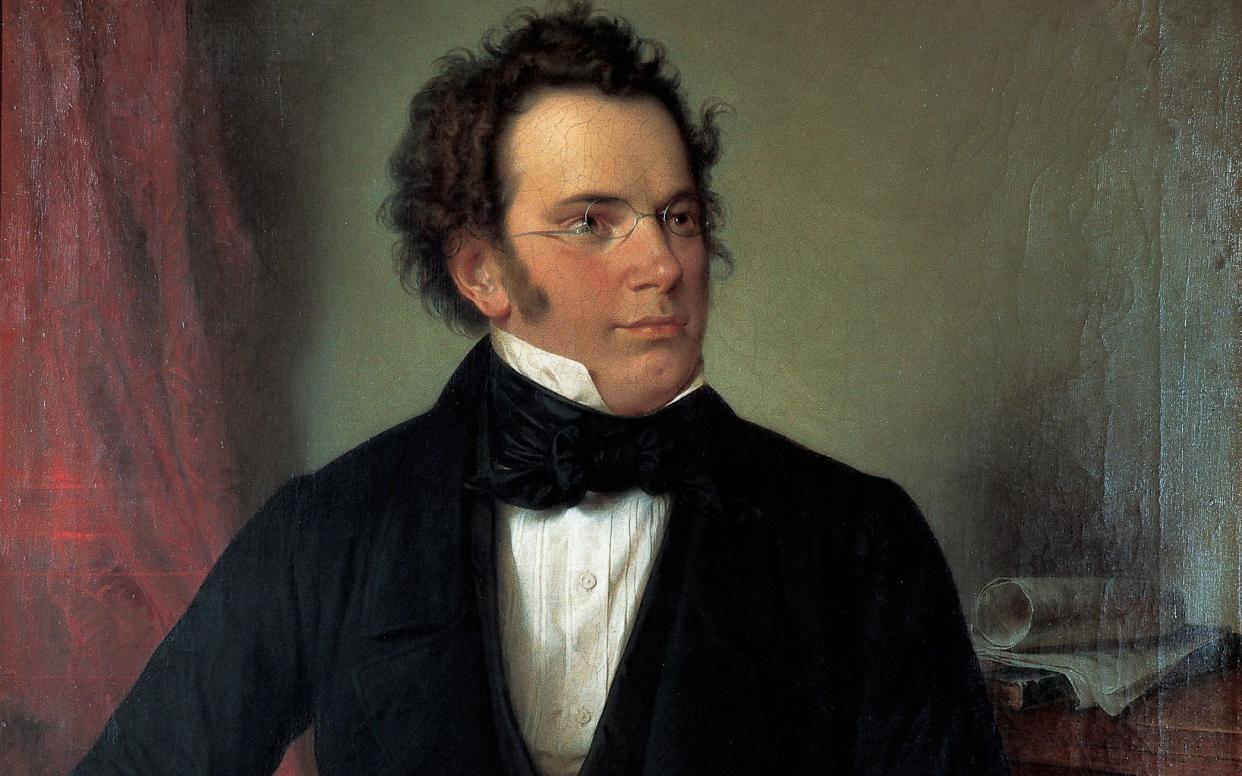At last – the perfect way to hear Schubert

- Oops!Something went wrong.Please try again later.
“Heavenly length” is a description often applied to Schubert’s generous musical forms, which roam through distant harmonies with leisurely ease as if the music has all the time in the world. It’s a phrase that’s apt for the two chamber pieces on a new recording released by Naxos, especially the late Piano Trio, which despite its slender forces is a big beast: the final movement is over 20 minutes long.
In some performances that luxurious length, combined with the assertive, thick piano texture, can weigh heavy on the ear. That never happens in these new recordings, partly because the players perform on old instruments appropriate to the period. The Arpeggione sonata was originally written for a bowed guitar, a newly-invented instrument which enjoyed a brief vogue in Schubert’s Vienna and was later dubbed "arpeggione". We normally hear it on the cello, but here Alexander Rudin performs it on an arpeggione, which is a revelation. It has a winningly transparent sound, and Schubert’s frequent ascents to the high register which can sound strenuous on a cello seem easy and natural on this instrument. Rudin’s accompanist Aapo Häkkinen plays on an early 19th-century piano that’s exactly right for the music. The delightful silvery slenderness of the fortepiano’s sound means the balance problems that often afflict this piece and the Trio simply melt away.
However just as you shouldn’t blame the tools when a workman does a bad job, you shouldn’t praise them either when things turn out superbly. Aapo Häkkinen is simply a wonderful musician, who would surely sound great on a pub honky-tonk piano. He has a charming way of softening the edges of Schubert’s score with an almost improvisatory freedom, often rolling chords that most pianists play "straight". Alexander Rudin and violinist Erich Höbart make a sound that’s robust without ever being heavy, and all three together infuse the music with a subtle rhythmic freedom, so Schubert’s frequent repetitions never sound exactly the same. “Heavenly length,” indeed.
Schubert: Arpeggione Sonata and Piano Trio No 2, performed by Erich Höbart (violin), Alexander Rudin (arpeggione, cello) and Aapo Häkkinen (fortepiano), is out now from Naxos

